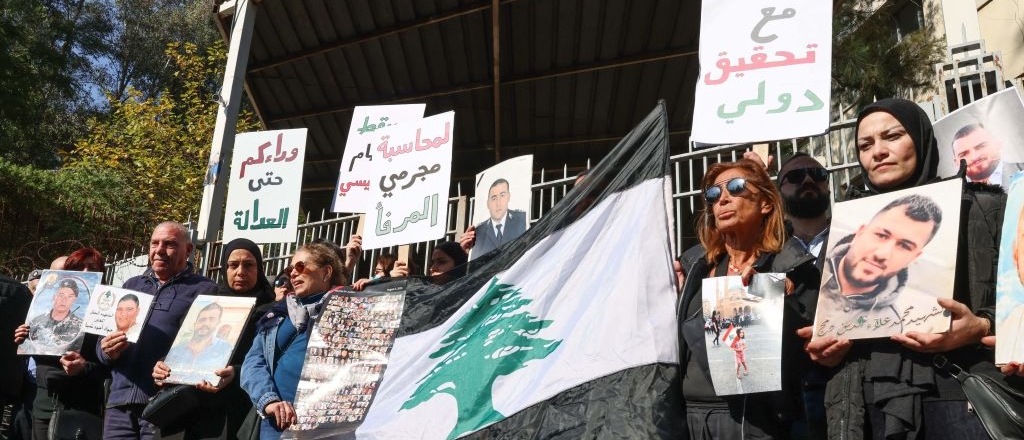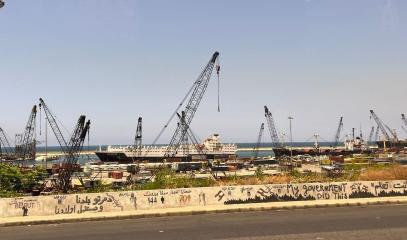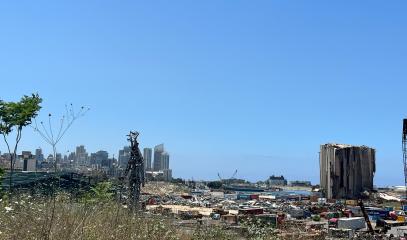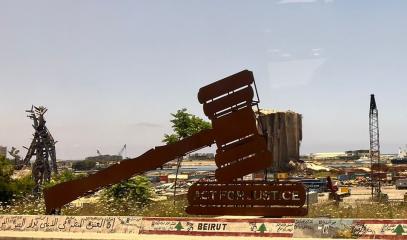Three years after the Port of Beirut explosion, families’ victims slam ‘state crime’
The Lebanese plan to mark the third anniversary of the Port of Beirut explosion which devastated parts of the capital on 4 August 2020. The investigation is bogged down by domestic squabbles and power struggles. A resolution by the European parliament is a “moral victory” but international action is needed to find the truth.
Beirut (AsiaNews) – The explosion of huge quantities of ammonium nitrate on 4 August 2020, is a state crime, this according to cardiologist Nazih el-Adm. The huge blast was triggered by a fire in a warehouse where tonnes of ammonium nitrate had been stored at the end of 2013, without proper safety measures.
About 230 people were killed in what is considered one of the most powerful non-nuclear explosions in recent history. One of them was Dr el-Adm’s daughter, Christelle.
This state crime, he believes, hides three other wrongdoings: that of silence, since the bags of the chemical compound were brought to Lebanon in 2013, six years before the tragedy; an actual crime; and the cover-up that has prevented people from knowing who brought in the nitrate and for what reason, and who, through criminal negligence, turned a blind eye to its presence.
Admittedly, about 20 people have been arrested as part of the investigation that followed the explosion, but the two investigators charged with the case, first Fadi Sawan and then Tarek Bitar, have faced multiple obstacles.
Dr Nazih el-Adm is not alone in considering the incident a state crime. Dozens of victims' families are “certain” that the perpetrators of the tragedy are the same who are currently trying to thwart the investigation.
Several groups defending the rights of victims' relatives, the largest of which is led by the Beirut Bar Association, have pushed for the inquiry to continue. But Judge Bitar's efforts continue to be hampered; for this reason, more and more people are calling for an international investigation.
After a 13-month-hiatus, due to some 40 lawsuits filed against the judge, the local investigation hit a high note on 23 January. In an unexpected move, Judge Bitar indicted eight people, including . . . Prosecutor General Ghassan Oueidat, and three other judges, for "murder, arson and sabotage".
Outraged, Oueidat immediately rejected the charges, and indicted Judge Bitar for “insubordination". To everyone's surprise, exceeding his authority, he ordered the release of 17 defendants arrested at different stages of the investigation, whose trial was still pending. Police dared not refuse the order.
One of those released was Mohammad Ziad el-Awf, director of the state security office at the Port of Beirut. For some observers, he was released under pressure from the United States, since he was a dual national. Victims' families believe el-Awf is one of those "in the know" of this case. Since then, the investigation has not progressed.
Moral vision
Meanwhile, the European Parliament, on 12 July, passed a resolution on the situation in Lebanon. While ignored by the press, for the relatives of the victims, it is as a moral victory.
Approved by a wide margin, the resolution “condemns the culture of impunity" that reigns in Lebanon, noting that “the establishment of an international fact-finding mission authorised by the UN Human Rights Council is all the more imperative” since “more than 162 Lebanese and international rights organisations, survivors and victims’ families have urged the UN Human Rights Council members to a resolution to that effect”.
13/10/2021 13:19
14/10/2021 17:14
26/01/2023 18:46










.png)










